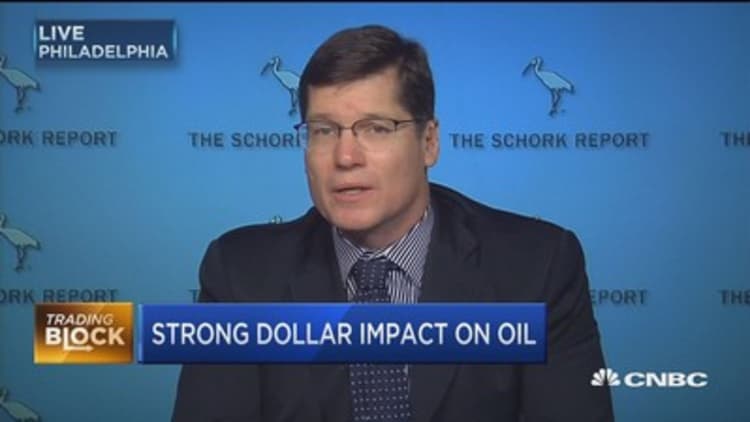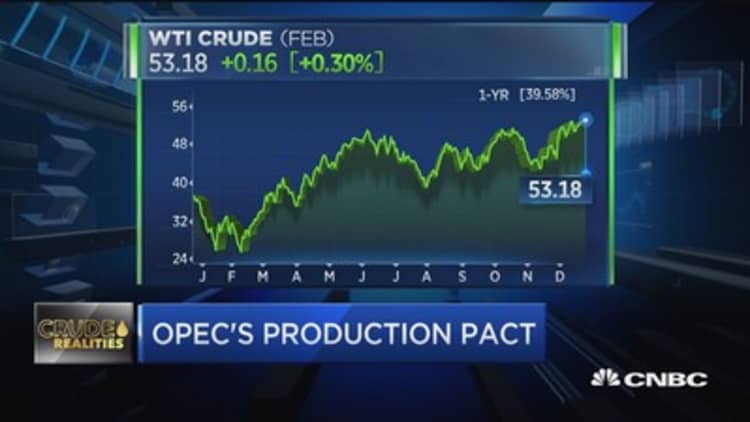
The U.S. dollar has been on a tear that threatens to derail the oil price rally and OPEC's effort to balance an oversupplied crude market, the editor of The Schork Report warned on Wednesday.
Dollar strength is being driven by forecasts for stronger economic growth and inflation in the United States than in other developed nations.
Oil prices have so far risen along with the dollar following an agreement among producing nations to cut output. But a stronger greenback typically weighs on crude futures because the commodity is priced in the currency. When the dollar rises, crude becomes more expensive to holders of other currencies.
"If we do see continued strength in the dollar that will have a double whammy on oil prices," Stephen Schork told CNBC's "Squawk Box."
First and foremost, prolonged dollar strength will inevitably crimp demand for crude oil, he explained. Lower demand will make it harder for the OPEC's output cuts to reduce huge stockpiles of crude that built up around the world following a boom in oil production.

That boom flooded the world with more oil than could be consumed and cratered crude prices.
Low prices boosted demand for crude throughout 2016 in emerging markets, and particularly in China, the world's second biggest oil consumer, said Matt Smith, head of commodities research at ClipperData. Higher prices threaten to substantially curb China's opportunistic buying, he told "Squawk Box" on Tuesday.
A stronger dollar will also tempt OPEC members and other producing countries to exceed the oil output limits they set in recent weeks, Schork said.
"From a seller standpoint — from an OPEC standpoint — your propensity to cheat and increase production to take advantage of dollar-denominated sales will increase," he said.
The OPEC cuts are scheduled to take effect next week. Schork said the market is making some broad-based assumptions about the effort.
One of those assumptions is that investors will see something they have never seen before: 100-percent compliance by OPEC members to production cuts. The producer group has a history of cheating on quotas.
Even if investors see a high degree of compliance, OPEC production will be higher than it was last year, Schork said.
"But if OPEC reverts to being OPEC — that is to say 60 to 70 percent compliance — then OPEC is still going to be producing 700,000 to 800,000 barrels of oil ... more this January than last January," he said.


